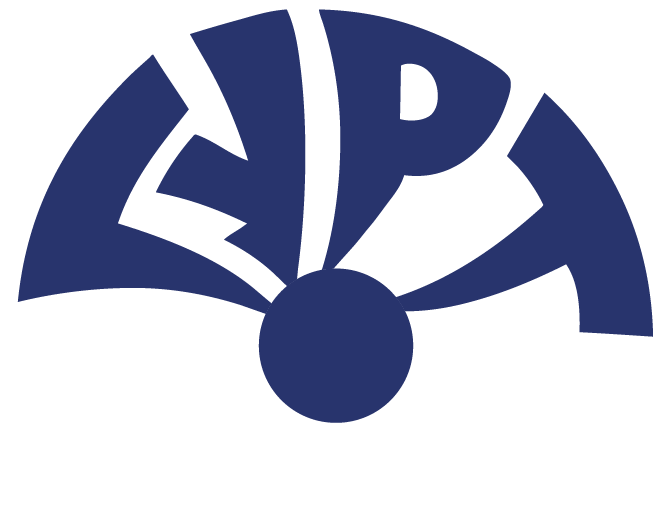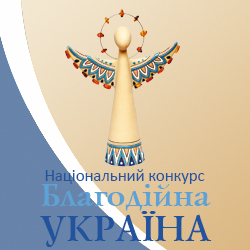


Тендер на проведення тренінгів з організаційного розвитку та лідерства
08.02.2016
Background
Within the CSO component of the LINK Programme, the Regional Environmental Center for Central and Eastern Europe (REC) is inviting applications from individuals/organisations to deliver training to CSO leaders from the five municipalities participating in the LINK Programme (Ivano-Frankivsk, Poltava, Cherkasy, Lubny and Berdychiv).
Main concept of the Organisational Development and Leadership course
The Organisational Development and Leadership course should be organised for approximately 40 CSO leaders from the five designated municipalities. The interactive training course should comprise two modules lasting four to five days each (including weekends), and should take place in spring 2016. The leadership training should encourage participants to move out of their comfort zone and should support the professional development of CSO leaders as well as their organisations.
he training should offer insights into the topics outlined below.
Module 1 Personal development of the CSO leader
The role of CSO leader and CSO management
- The most important leadership functions and how to perform them better.
- The day-to-day work of a CSO leader: How do they allocate their time? What are the problems, tensions and dilemmas associated with their role?
- The expectations of various stakeholder groups regarding the CSO leader: What do “responsibility” and “accountability” mean from the perspective of a CSO leader?
Self-management
Self-awareness and self-management are integral aspects of leadership. Successful leaders:
- are aware of their strengths and weaknesses and carry out their work accordingly;
- examine their behaviour and responses to new situations;
- systematically analyse and develop their capacities.
Time management
Good time management addresses:
- the need to come up with short-term immediate solutions and to perform more strategic tasks at the same time;
- the importance of self-motivation, switching off from work and recharging;
- the need for effective self-control; and
- the ability to handle work-related stress and burnout issues: How can you recognise signs of stress and overwork both in yourself and in your team members? What is causing the stress? How can you reduce tensions in the team?What are the options for recovery?
Human resources management
The CSO leader is the leader of a team. Their basic human resources management tasks include:
- the strategic management of human resources and the people management cycle; and
- recruitment, team formation, goal setting, the motivation of team members, the provision of feedback, and handling the departure of members of the team.
The leader’s responsibilities and tasks when developing the team include:
- developing the potential of employees and volunteers, assigning work, setting goals and evaluating performance;
- providing feedback, both positive and negative;
- offering career guidance, learning and development opportunities and rewards;
- deciding what kind of management approach and style to adopt; and
- working with volunteers.
In terms of the organisation’s culture and values, the leader is responsible for:
- creating a good working context and a healthy and inspiring environment; and
- ensuring conflict prevention and resolution.
Teaching methods and outcomes
A variety of teaching methods should be used, including self-analysis, group work, interactive lectures, modelling, case analyses, debates, individual assignments and creativity development techniques. One of the module outcomes should be an individual self-development plan that is completed as a home assignment between the two modules.
Module 2 Organisational development
Strategic leadership: Policy making
- The role of leader in strategic management (creating content and a concept for the organisation, internal planning, joint decision making, problem solving and implementation).
- Strategy in the field of content creation, understanding the organisation’s own/societal problems and needs.
- Strategy implementation.
- Translating large objectives into the everyday work of the team (What tools and processes should be used, such as work plans, budgets, employee targets, assessment and feedback?).
- The role of the board and other organisational governance issues, internal policies and procedures.
Strategic leadership: CSO impact assessment
- What does an impact assessment of CSO work involve? Why is it needed? When should it be used?
- What are the main methods and steps in an impact assessment? How can you identify the problem, find a good solution, assess results, and collect and analyse data? How can you differentiate between an output, an outcome and an impact?
Financial management
- Financial planning, budgeting, accountability and reporting requirements (e.g. towards the state and donors).
- Ensuring the diversity of funding: grant programmes, self-generated income and donations.
- Division of responsibilities in managing resources.
Networking, cooperation and partnership
- Effective networking and relationship building and their direct impact on CSO success.
- Developing a good reputation, openness and honesty: fundamental communication principles.
Communication and outreach
- Strategic communication, in-house communication, effective communication skills.
- Media relations and successfully operating in today's information society, including the use of social networks.
Teaching methods and outcomes
A variety of teaching methods should be used, including self-analysis, group work, interactive lectures, modelling, case analysis, debates, individual assignments, creativity development techniques etc. Based on the newly acquired knowledge, one of the module outcomes is the translation of the findings of the organisational self-assessment (an activity conducted between the two modules) into the organisational action plan.
General terms
The two interactive training sessions will take place in spring 2016 in two different locations (with a potential to host and accommodate up to 45 people) in the Ukrainian language. The training locations will be decided by the REC, taking into account the suggestions of the training provider.
The main concepts of the training materials must be provided to the REC team in English.
The full training materials should be developed in the Ukrainian language.
The training provider should include within the training programme the following interventions:
- During module 1 of the training, a half-day introduction to organisational self-assessment and the introduction of the organisational self-assessment trainers and organisational leaders (this intervention will be led by international experts selected and hired by the REC).
- During module 2 of the training, a one-day follow-up on organisational self-assessment and how to convert the findings into the organisational development plan (this intervention will be led by international experts selected and hired by the REC).
Key tasks of the Organisational Development and Leadership training provider:
The training provider will:
- supply a training agenda for both modules for approximately 40 trainees;
- provide a pool of trainers/experts and consult with the REC where needed;
- ensure the quality and timely completion of the training materials (in the required number of copies) in the Ukrainian language;
- suggest to the REC team appropriate training locations;
- organise transportation for the trainers to and from the training venue;
- deliver the training;
- provide a comprehensive training report (narrative and financial) according to the format provided by the REC; and
- maintain constant communication with the REC team (e.g. on the concept, preparation and development of training materials).
The REC will pay for the hire of the training facility, the equipment needed for the training (e.g. data projectors, interpretation equipment), and accommodation for the trainers and trainees.
Specific requirements
The provider of the training is required to have the following set of skills and competencies:
- previous experience of organising trainings on CSO leadership and development issues;
- a profound knowledge of the subject;
- a demonstrated ability to coordinate the work of trainers/team members;
- management and communication skills; and
- the ability to communicate and report in English.
Submission of applications
The REC is inviting applications from individuals/organisations with the experience and skills outlined above. Applications must include:
- the CV of the chief coordinator of training, detailing relevant skills and experience;
- a description of the pool of trainers/assistants, with short bios relevant to the training;
- a detailed concept for the two training modules, covering topics and methodology; and
- a price offer (in EUR), completed using the REC budget template, indicating the fee for the organisers and trainers; and the direct costs of organising the training (training materials, approximate transportation costs per kilometre etc.).
Applications should be sent by email, with the subject line “Link CSO Leadership and Development Training”, by February 16, 2016, to Kaidi Tingas [email protected]
Контакти
- Regional Environmental Center for Central and Eastern Europe
- Kaidi Tingas
- [email protected]
- http://link-ukraine.rec.org/


Коментарі